<< Previous | Displaying results 41-50 of 1197 for "Holocaust" | Next >>
The Krakow ghetto in German-occupied Poland held over 15,000 Jews. Learn more about Krakow and the ghetto’s history during the Holocaust and WWII.
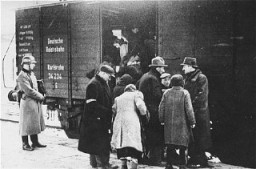
After WWII and the fall of the Nazi regime, Holocaust survivors faced the daunting task of rebuilding their lives. Listen to Aron and Lisa Derman's story.
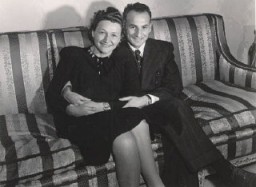
The Kielce pogrom was a violent massacre in the town of Kielce, Poland in 1946. Learn more about the events that led up to the attack and the aftermath.
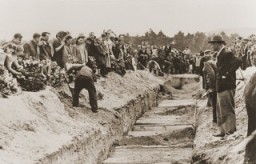
Learn more about the modern misuse of images and symbols from the Holocaust and how this distortion can lead to antisemitism.
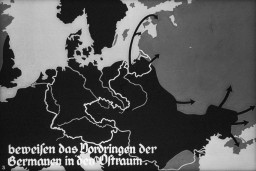
The Allied decision not to bomb the gas chambers in or the rail lines leading to Auschwitz-Birkenau has been a source of sometimes bitter debate. Learn more.
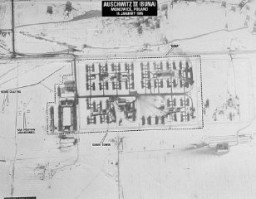
The United States Holocaust Memorial Museum opened in April 1993. Explore the history of the nation's memorial to the millions murdered during the Holocaust.
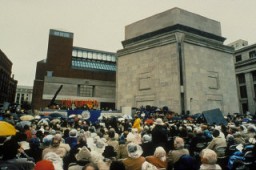
Behind the number of victims of the Holocaust and Nazi persecution are people whose hopes and dreams were destroyed. Learn about the toll of Nazi policies.
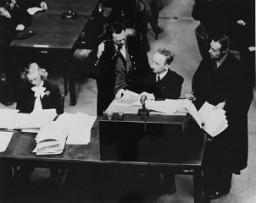
Read a detailed timeline of the Holocaust and World War II. Learn about key dates and events from 1933-45 as Nazi antisemitic policies became more radical.
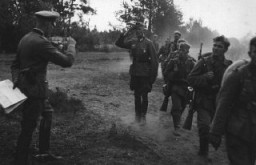
Learn about the experiences of 6 Holocaust survivors whose journeys brought them to the United States: Thomas Buergenthal, Aron and Lisa Derman, Regina Gelb, Blanka Rothschild, and Norman Salsitz.
The Holocaust (1933–1945) was the systematic, state-sponsored persecution and murder of six million European Jews by the Nazi German regime and its allies and collaborators. The Holocaust era began in January 1933 when Adolf Hitler and the Nazi Party came to power in Germany. It ended in May 1945, when the Allied Powers defeated Nazi Germany in World War II. The Holocaust was a German initiative that took place throughout German- and Axis-controlled Europe. It affected nearly all of Europe’s Jewish…
We would like to thank Crown Family Philanthropies, Abe and Ida Cooper Foundation, the Claims Conference, EVZ, and BMF for supporting the ongoing work to create content and resources for the Holocaust Encyclopedia. View the list of donor acknowledgement.